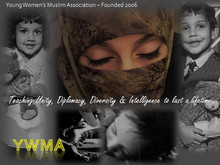CHARACTERISTICS AND BEHAVIORAL INDICATORS OF ADULTS WHO MOLEST CHILDREN
When most people imagine a child molester, they picture some ugly, old man in a trench coat coaxing children to come to him in exchange for some candy. They don’t picture Uncle Joe or Aunt Lorraine, the neighbor next door, the friendly parishioner, another family member, or trusted co-worker. They don’t think of mom or dad or in the case of single parents their significant other. This misconception has been effectively dispelled through information obtained in thousands of child sexual abuse investigations over the years. Child molesters come from all walks of life and from all socioeconomic groups. They can be male or female, rich or poor, employed or unemployed, religious or non-religious or from any race. Children can be molested by persons they don’t know, relatives, friends, or caregivers.
Both men and women molest children, although the majority of those identified, and prosecuted for a sex offense, are men. Adults who molest children can generally be divided into two groups, according to their behaviors. A small percentage may suffer from a lifelong exclusive attraction to children and have little or no emotional interest in adult partners. The majority is not exclusively attracted to children, have adult emotional relationships, and have not molested multiple child victims. The widespread misconception that child molestation consists solely of children being seized from the street and forcibly molested couldn’t be farther from the truth. Although these incidents do occur, the vast majority of child molesters are adults who seduce children through subtle intimidation and persuasion and are known to the child.
The child molester who is not known by the victim may use a variety of methods to gain access or gain the confidence of the victim. He may use force, fear, bribery, or tricks. He may pretend or appear to be friendly and trustworthy. Often he gains access to children in public places, such as playgrounds, parks or shopping malls. Through the experience of law enforcement investigators, treatment providers, and research, some common behavioral indicators have been identified and are described below.
Behavioral Indicators of Men and Women Who Have Molested Children
CAUTION: Some people who have molested or plan to molest a child exhibit no observable behavior pattern that would be a clue to their future actions.
Person who molest children:
Are aware, in most cases, of their preference for children before they reach age 18. Most offenders are adult males, but some women also molest children.
Are usually married. A small number never marry and maintain a lifelong sexual and emotional interest in children.
May relate better to children than adults and may feel more comfortable with children and their interests.
May have few close adult friends.
Usually prefer children in a specific age group.
Usually prefer one gender over the other; however, some are bisexual in their preferences.
May seek employment or volunteer opportunities with programs involving children in the preferred victim age group for this type of offender.
Pursue children for sexual purposes and may feel emotionally attached to the extent that emotional needs are met by engaging in relationships with children. Example: An adult man spends time with neighbor children or relatives and talks at length about his feelings for them or his own feelings of loneliness or loss in order to get the child’s sympathy.
Often photographs or collects photographs of their victims, dressed, nude, or involved in sexual acts.
May collect child erotica and child-adult pornography which may be used in the following ways:
To lower the inhibitions of the victims.
To fantasize when no potential victim is available.
To relive past sexual activities.
To justify their inappropriate sexual activities.
To blackmail victims to keep then from telling.
May possess alcohol or narcotics and furnish them to their victims to lower inhibitions to gain fear.
Talk with children in ways that equalize their relationship.
May talk about children in the same manner as one would talk about an adult lover or partner.
May seek out organizations and publications that support his sexual beliefs and practices.
May offer to baby-sit or take children on trips in order to manipulate situations to sleep with or near children or bathe or dress them.
May be seen at parks, playgrounds or places frequented by children or teenagers.
Interfamilial Child Abuse
The incestuous or interfamilial molester is usually an adult male (father, stepfather, grandfather or live-in boyfriend of the mother); however, mothers or other female caregivers also sexually abuse children. The molestation is usually secretive and is sometimes accomplished through misuse of power, mental duress, bribes, tricks or misuse of parental role under the guise of sex education and threats.
Common threats may include: That the child would be removed from the family if they do not succumb to the offenders wishes; that they would be blamed for hurting the family if the offender is arrested; that their siblings would be sexually abused if the victim does not consent. Often the offender will portray to act needy or emotionally distraught as a result of marital problems, thereby needing the attention of the victim.
The molestation usually occurs over an extended period of time, occasionally into the victim’s adulthood. Through intimidation, the child is made to feel responsible for the molestation and for keeping the acts secret. This secret is normally kept between the offender and the victim, or within the immediate family.
There are many situations where a family with children can be vulnerable, such as single parent families where the parent has a full time job and is attempting to fulfill the role of both parents as well as run the household or in situation where family conflicts leave a child feeling alienated or abandoned. Some male offenders seek out mothers who are single parents for the purpose of victimizing their children. In these cases, he may have a genuine attraction to the mother and the hidden agenda of pursuit of the children as victims.
Children from all types of families can be vulnerable to child molestation. Any child whose need for attention or affection are not being met can be particularly vulnerable. It is important to remember that because adults have power over children; any child can be at risk.
Talking to Your Children
Because children get their power through secrecy the single most effective means of protecting your child is communication with your child. They have to feel comfortable discussing sensitive matters with you. If they feel they can talk with you about their true feelings and that they will not be “put down” for it, then they will be more likely to tell you when they are put in an uncomfortable situation by a child molester. Also, children need to know that there are many adults who can help if they have a problem. The handout “Personal Safety for Children” and the National Center for Missing and Exploited Children pamphlet “Child Protection”, give you excellent examples of basic safety rules for children. For a list of free child safety pamphlets, call the National Center for Missing and Exploited Children, toll free 1-800-843-5678, or call your local sexual assault program, victim services agency, or social services agency.
GENERAL PERSONAL SAFETY OPTIONS
Incidents of violence can occur anywhere at anytime. Trust your gut feeling that something may be wrong. These are some guidelines that may help reduce potential vulnerability. Remember though, whether you choose to use the options or not, no one has the right to harm you.
AT HOME
Be aware of your surroundings. Be familiar with who is coming and going – who belongs and who doesn’t.
Know your neighbors and learn who can be called for assistance when needed.
Women may be safer using only first initials and last names on mailboxes and in phone directories.
Change locks when you move into a new residence. Make sure your doors have dead bolt locks, security chains and peepholes. Use them!
Don’t hide spare keys outdoors.
Check I.D’s when repair people, salespeople, meter readers, etc. come to the door. Don’t hesitate to call and check them out or refuse them admittance if something feels wrong.
If you let someone in and are having second thoughts, be assertive. Tell them to leave or leave yourself. Pretend you are not home alone by mentioning a friend or family member asleep in the next room.
Make sure entrances, garages, grounds, and hallways are well lighted.
Leave porch lights on at night or when you expect to return after dark. Leave an interior light on in a room or two with the shades drawn. Leave a radio on.
Instruct children and babysitters not to give out information about who is home, who is out or for how long.
Don’t leave notes on your door for others or allow solicitor’s material to remain on your doorknob since they advertise your absence.
If you suspect your home has been broken into, don’t go in or out – go someplace else and call the police.
Always lock doors when doing yard work or otherwise spending time in the yard. If you have a portable phone, take it outside with you.
Be careful when using computer internet or on-line services. Use caution in providing personal information. Being flooded with e-mail can be annoying; having a chat room participant show up at your door uninvited can be terrifying. Be careful allowing your child to use the internet.
IN YOUR CAR
Keep car doors locked at all times, and windows rolled up all the way.
If you have car trouble, raise the hood and stay in your vehicle. If someone offers assistance, roll the window down just enough to talk to them. Ask them to stop at the first phone and call the police for you.
Don’t stop to help a stranger in a stalled vehicle – go to a safe place and report the stalled vehicle to the police.
If someone tries to break into your car while you are in it, honk the horn in short, repeated blasts and try to drive away.
If you are being followed, don’t go home. Drive to the nearest fire or police station or an open gas station – anyplace with people around.
Try to keep your car maintained, and keep your gas tank at least half full.
Park as close to your destination as possible, and in well-lighted areas whenever feasible.
If security staff is available to walk you to your car, don’t be embarrassed to use them.
Check inside your car before getting in.
If you leave keys with a parking attendant or at a service station, leave only the car (not your house) key.
Purchase/lease a cellular phone and keep it charged.
Always have your keys ready to unlock the car door and enter without delay. You will appear vulnerable if you are looking for your keys as you approach your car.
ON THE STREET
Stay on populated, well-lit streets. Avoid shrubbery, dark areas near buildings and other places an attacker might hide. Avoid shortcuts through alleys, vacant lots and other deserted places. When possible, avoid walking or jogging alone – even during the day.
Look around as you walk and be aware of your surroundings. Make it difficult for anyone to take your by surprise. Walk confidently at a steady pace.
Avoid secluded and deserted areas and businesses (Laundromats, phone booths, etc.).
Carry something that can make a loud noise that can scare off possible attackers.
If using public transportation, sit near the driver.
If you have gotten a ride in a cab or from a friend, ask the driver to wait and watch until you are safely inside your destination.
Be cautions about revealing cash or credit cards.
Try to limit the number of items you carry.
If you carry a handbag, hold it close to your body with fastener closed and turned toward your body so a thief can’t grab it and cause injury or knock you down. “Fanny-packs” keep your personal items close to your while keeping your hands free.
Don’t wear headphones. They block your ability to hear someone approach you.
Again, trust your instincts. Don’t hesitate to remove yourself from the situation. Forget the rules of etiquette and social norms. Be willing to make a scene if necessary. Most rapes are not committed by strangers, but by men who know their victims. Your safety may depend on a quick and decisive reaction.
ABOVE ALL, BE OBSERVANT AND AWARE OF YOUR SURROUNDINGS AT ALL TIMES.
SAFETY TIPS FOR CAREGIVERS TALKING WITH CHILDREN
Every parent should know and follow the safety tips offered below. Please take the time to read and share this information with your children.
LISTEN TO CHILDREN And believe what they are telling you.
TAKE RESPONSIBILITY Know where your children are at all times. Be familiar with their friends and daily activities.
BUILD SELF-ESTEEMA child who has low self-esteem cannot protect himself/herself. Listen carefully to your children’s fears, and be supportive in all your discussions with them. Replacing fear with knowledge.
TEACH DECISION-MAKINGChildren at all ages can make decision. Practice early with little decision so big decisions later are easier. Teach them to trust their own feelings, and assure them they have the right to say NO to what they sense is wrong.
BUILD SUPPORT SYSTEMSChildren need positive adult role models and need to know where to go for help.
CHOOSE SUBSTITUTE CAREGIVERS CAREFULLYInterview and monitor babysitters, group leaders, youth pastors, etc. Be alert to a teenager or adult who is paying unusual amount of attention to your children or giving them inappropriate or expensive gifts.
PROTECT KIDS WHO ARE HOME ALONESet ground rules, emergency contacts, and responsibilities for latchkey kids.
TALK WITH CHILDRENTeach your children that no one should approach them or touch them in a way that makes them feel uncomfortable. If someone does, they should tell their parents immediately.
BE SENSITIVE Watch for changes in a child’s behavior, they are signals that you should sit down and talk to your children about what caused the changes.
USE ROLE-PLAYINGRehearse safety situation with your child. Give them power through knowledge. Play the WHAT IF? Game.
LET KIDS BE KIDSTeach them what they need to be safe and let them know you will do your best to protect them. Don’t scare the fun out of children.
This and other safety information is available to yourself and others from the following organization. Please share these tips with your family and friends.
NATIONAL CENTER FOR MISSING AND EXPLOITED CHILDREN: 1-800-THE-LOST
SAFETY TIPS FOR CHILDREN
As soon as a child is old enough to articulate a sentence, he or she can begin the process of learning how to protect him or herself against abduction and exploitation. Children should be taught all of the following safety measures and tips.
WHO AM I AND WHERE I LIVETeach children about who they are including their full name, birth date, complete address, phone numbers (including area code), and their caregivers full names.
WHAT I DO IF I AM LOSTIf you are in a public place and get lost, don’t wander around. Go to a checkout counter, the security office, or the lost and found. Tell the person in charge that you are lost.
CHECK FIRST Always check with your parents, teacher, babysitter or caregiver before getting into a car or going anywhere with any person. CHECK FIRST before going into a neighbor’s house. CHECK FIRST before going anywhere. Your caregivers need to know where you are.
USE THE BUDDY SYSTEM It’s more fun and there is safety in numbers. You should not be wandering around the neighborhood after dark or alone.
STAY AWAY If someone follows you on foot or in a car, stay away from him or her. You shouldn’t go near the car to talk to the people inside.
DON’T ASSIST ADULTS No one should be asking you for directions or to look for a lost puppy or to ask for assistance. Adults should ask adults, not children.
RUN, SCREAM, GET AWAY If someone tries to take you away, your best defense is your legs and your voice. Yell “I don’t know this person, and they’re bothering me.” Try to run and scream before they get too close. Call 911 using any phone. It’s a free call; you don’t need any money.
NEVER HITCHHIKE Hitchhiking may put you at risk for a dangerous situation.
DON’T KEEP SECRETS Don’t keep secrets that make you feel uncomfortable. No one should ask you to keep a special secret. Tell an adult you trust.
YOUR BODY IS SPECIAL AND PRIVATE No one should touch you in the part covered by your bathing suit, nor should you touch anyone else in those areas.
KNOW THAT YOU ARE SPECIAL If you have a problem – any kind of problem – you can talk to your parents, a teacher, a counselor, principal, a police officer or a friend of the family.
YOU CAN CALL 911If you have an emergency, or are in a situation where you feel you are in danger, CALL 911. You can ask for help.
BE ALERT TO COMMON TRICKS
THE BRIBE OR OFFER TRICK
The victim is offered something he or she might want. A young child might be offered candy, a toy, or gum; a teen might be offered money, free food, a ride, or a trip to some place novel or exciting. Sometimes a person will take a valued belonging and then offer to return it only if the victim goes with the person, or allows sexual contact.
This and other safety information is available to yourself and others from the following organization. Please share these tips with your family and friends.
NATIONAL CENTER FOR MISSING AND EXPLOITED CHILDREN: 1-800-THE-LOST
ACQUAINTANCE RAPE: CAN I REDUCE MY RISK?
Sexual assault is any sexual activity that is forced. Sexual assault is an act of control, aggression and anger. The force used against you can be physical such as hitting, being held against your will, or being threatened by a weapon. It also can emotional or psychological, such as being pressured into sex through guilt, being given money or gifts in exchange for sex, or being taken advantage of while you are under the influence of alcohol or other drugs.
More than 85 percent of sexual assault victims are assaulted by someone they know, such as a family member, friend, date, acquaintance, or neighbor. Both men and women, boys and girls can be victims of sexual assault.
Most sexual assaults are planned in advance with the offender seeking an opportunity to find someone who may be vulnerable to his/her tactics. Offenders seek victims who they believe are easy targets. There is no guaranteed way to prevent sexual assault, but we can identify tips for decreasing our vulnerability to offenders. The following are some suggestions to deter a sex offender.
Be careful of your use of alcohol and drugs. Vulnerability increases when one is intoxicated or high.
Know your sexual intentions and limits. You have the right to say “no” to any unwanted sexual contact.
Communicate your limits firmly and directly. You have the right to expect your limits to be respected.
Listen to your feelings. If you feel uncomfortable or think you may be at risk, leave the situation immediately and go to a safe place.
Don’t be afraid to “make waves” if you feel threatened. If you are being pressured or coerced into sexual activity against your will don’t hesitate to state your feelings and get out of the situation. Better a few minutes of social awkwardness or embarrassment then the trauma of a sexual assault.
Attend large parties with friends you can trust. Agree to “look out” for one another. Try to leave with a group rather than alone or with someone you don’t know very well.
When starting to date a new acquaintance have the first few dates in a public place. Avoid becoming isolated with someone you don’t know very well.
For the first several dates, insist on paying your own way or taking turns with “treating”. Sometimes offenders use the “you owe me” line to try to guilt someone into sex.
As a relationship may progress, avoid becoming physically, emotionally or socially isolated from friends and family. Assaults within on going relationships do happen.
Even if we take many precautions or steps to make ourselves less vulnerable, there is no guarantee that we can prevent a sexual assault, remember:
Sexual assault is never the victims fault.
Victims do not cause their assaults.
Offenders are responsible for their actions.
If you or someone you know is a victim of a sexual assault, there are people and programs that can help. For information about the sexual assault program in your area call 1-800-775-8013.
Rachel SAKHI Attorney of NASA Journey to Poverello House
The Neverland Institute of Naturopathic Medicine (Distance Education University), Hal Jackson's Talented Teens, & Rachel SAKHI Attorney of NASA Journey to Poverello House
Number One Video: American History - The Obama's
Sakhi Attorney Cellular
Mail Me Here!
QUEEN OF EGYPT. The Untold Diaries. Appraisal: 7,000,000

Autobiography, Motion Picture, Soundtrack
MAPPS - Mothers Against Preditory Pornographic Scout-Masters
- Ancient Times, Ancient Techniques. Modern Times, Modern Techniques.
- Blog Coming Soon - Topics & Evidence on Examples of how women, men, and children are stalked, harassed, isolated, kidnapped and traded in Human Trafficking for purposes of humiliation, degradation, racism, etc.
Monday, December 15, 2008
Subscribe to:
Post Comments (Atom)
NEVERLAND(tm): (Brand Name: patents, trademarks, copyrights owned by Rachel SAKHI 1277a.d.
HAM: The Root of My Tree
R Sakhi's Podcast
Chandra Mukhi Prana Sakhi Kannada Classic Movie
YWMA -Young Women's Muslim Association

Teaching Unity, Diversity, Diplomacy & Intelligence to last a lifetime. Founded - Parson Dr. Rachel Al-Shehari
eChaplain Weddings

Chaplain Dr. Rachel SAKHI سخی©
THE SAKHI'S
YES, WE CAN AMERICA.
EMJAY RACHEL MOHAMMAD INTERVIEW OF A FOSTER CHILD
EMJAY RACHEL MOHAMMAD DOCUMENTATION VIDEOS
EPIC REVOLUTION: NROB
EMJAY RACHEL MOHAMMAD 72 HOUR SHELTER CARE HEARING
Bootes - Herdsman ~ Maiden- Virgo ~ Dorado-Swordfish ~ Lynx-Lynx ~ Queen-Cassiopeia ~ King-Cepheus
Star CLusTures - Galactic -+ 10,000=.00 ~ GLobUlAr -+1,000,000=.00
About Me
- Classic Touch Studio
- The key to progress is love. The key to love is peace. The key to peace is worth. The key to worth is purpose. The key to purpose is aid. The key to aid is nurturing. The key to nurturing is security. The key to security is education. Let's give the gift of keys to unlock the promise of our nest eggs. Just like conception, what we fertilize today will reflect our nations character tomorrow. Eggheads Youth Coalition: http://www.eggheadsyouthcoalition.org Heritage: Culture: Ethnicity: Nationality: Racial Background:
CARNIVAL

Convert Page to PDF
Spider Monkey

queenofegyptthemovie"s Photobucket root album media
Lecteur D'esprit

www.MindReaderTheSeries.com
Saana Iman Rose

Masterful Paintings
Eggheads Youth Coalition
HFS AIDS/HIV Campaign 2007
Food for Thought
Black Panther

A Microsoft Clipart Photo. Try It!
Humanity
It is not my specialty at this time to diagnose and treat mental health problems, however, by nature I am inclined as a Preventative Care Physician, Addictions Counselor, Hypno Psychotherapist and patron of humanity to utilize my 20 years of experience for recognizing, administering, and facilitating rehabilitation where it is needed. The key to my services is whether or not an individual wants to change. If an individual wants change it makes my love for helping others a whole lot easier. There's nothing comparible to the rewards of serving others.
Blog Archive
-
▼
2008
(593)
-
▼
December
(47)
- Heart Breaking Afghan Remix
- Aladdin - A whole new world
- Beauty & The Beast
- Sometimes a charming situation will only lead to h...
- Please, Let's hurry and get this disgusting shamef...
- YOU READY? OH, STEAL ALL THE EVIDENCE YOU WANT. AD...
- I WILL FILE FOR A DIVORCE FOR ADELLA (THE OTHER LA...
- SO HERE'S THE DEAL. I WILL FILE FOR A DIVORCE OF Y...
- NOT FOR THE RECTUM OF AN OLD LADY WHO IS ILLICITLY...
- THE ROMEO/JULIET MURDER THREAT OF HERSELF WAS AFTE...
- WHEN SHE NOTICED US GOING TO HAVE SEX DOWNSTAIRS, ...
- SHE INTENTIONALLY PLACED THE ENEMA ON THE CHEESE I...
- HOW DOES SHE HAVE ENOUGH STRENGTH TO HAVE REGULAR ...
- So she is what, 64 years old, addicted to prescrip...
- And to actually be loyal and in love with her. You...
- Are all the guys screwing their moms?? Is this som...
- Yeah! I'm brokenhearted. What do you expect Dirty ...
- You are married to your OWN MOM for God's Sake. Ho...
- EVEN TO THE POINT WHERE A WIFE or girlfriends just...
- SHE WILL STOP AT NOTHING. Destroying children just...
- She was so jealous of me...THAT SHE OPENLY TRIED E...
- THE FIRST ROBBERY: YOU STOLE THE SALINE ENEMA SHE ...
- IF THE POLICE REPORT WAS SCREWED & TWISTED TO MAKE...
- To answer your QUESTION - "Have I ever been to a h...
- Interfamilial Child AbuseThe incestuous or interfa...
- WARNING SIGNS OF THE PEDOPHILE
- A Safe Alternative to IRON PILLS. YES FOR YOU VEGA...
- Now...about that Strawberry Cod Liver Oil Nutritio...
- PERFECT EXAMPLE: THE ISOLATION OF MY CHILDREN AWAY...
- An Elder in My family also mentioned: My mom was n...
- MY MOM WATCHED Treee MOVIES WITH ME AS A Youth: Gr...
- THE UNIVERSITY OF WASHINGTON - THEIR EMPLOYEES : W...
- Marriage Immigrant Women Situation and their Empow...
- WHEN A MAN WANTS A PARTICULAR CHILD: THEY MUST REP...
- MINDREADING: They are smuggling or smuggled. SMUG...
- BTW: Off the subject, but yeah poor jealous mongre...
- 75-yr-old hounds child bride in Malda - INCEST AS...
- MINDREADER: "Now we are even-handed"
- WHAT IF THE OLDER MAN IS GAY? DOES HE REQUEST ON T...
- WHAT IF THE LADY IS LESBIAN & OLD? A YOUNG LESBIAN...
- MONEY LENDERS - CROP PICKERS - CHILD BRIDES - BLAC...
- Just last year, the male head of a prominent Pakis...
- What happens to children who run away from amorous...
- according to Afghan tradition is to be paid by the...
- RETURN THEM N. O. W. = understand pieces of vermin...
- SO YOU KIDNAPPED MY BABIES TO UTILIZE AS COLLATERA...
- IDENTITY THEFT: HEY JACKAS*ES, IF YOU WERE TRYING...
-
▼
December
(47)











1 comment:
celebritynaked [url=http://shine.yahoo.com/channel/none/alyssa-milano-reminds-2086168/] naked pictures[/url] beach nude
Post a Comment